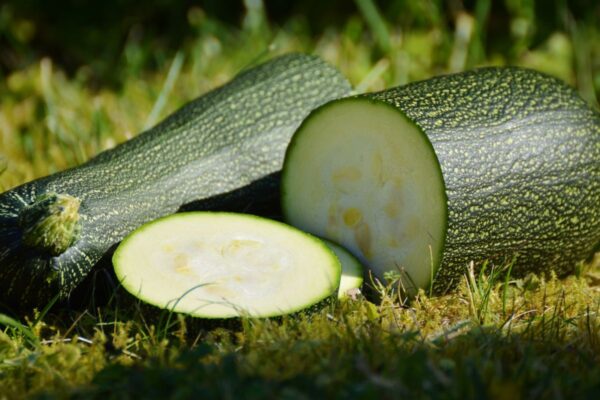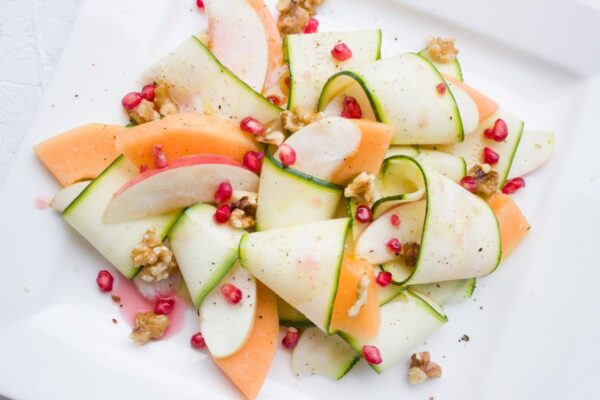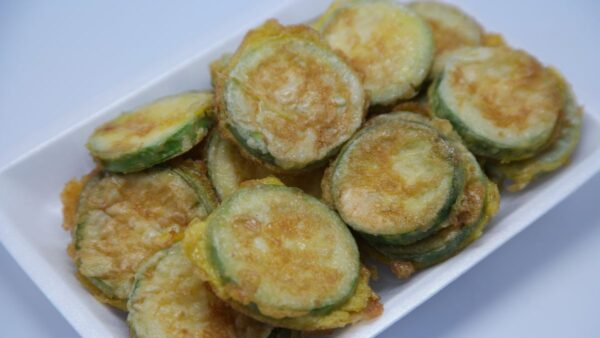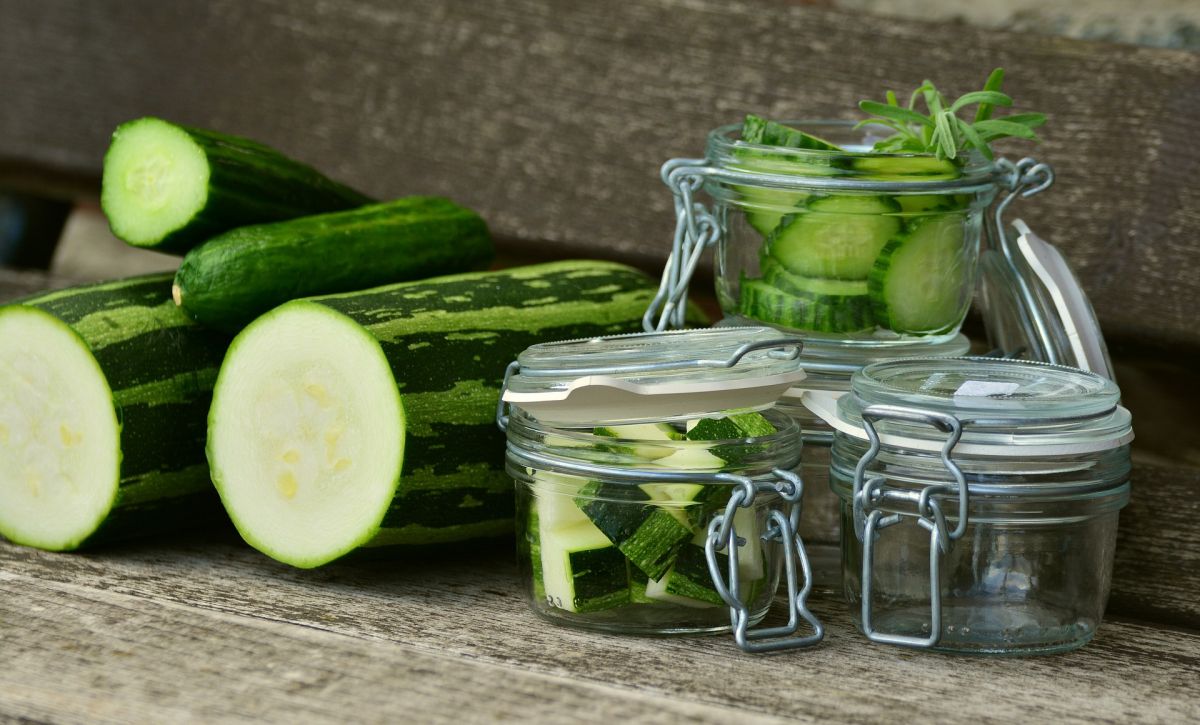Excess weight, poor nutrition, and an unhealthy lifestyle are three of the most important causes of fatty liver disorder.
Maintaining a diet full of antioxidants and anti-inflammatory chemicals helps to avoid fatty liver disease and other liver problems. And with zucchini being high in vitamins and minerals, they can be considered a good food for fatty liver.
Zucchini also has a high sodium content, so it will aid in the maintenance of liver alkalinity and facilitate detoxification.
Zucchini is beneficial to the entire body as it is low in calories and high in crucial nutrients required for the optimal functioning of your body and liver.

When you incorporate zucchini into your daily diet, you’re giving your body a healthy alternative to higher fat options. So I guess that already answered the question in the title, but let’s just make it clear once more!
Can you eat Zucchini with fatty liver?
You can eat zucchini with fatty liver. Actually, it’s one of the safest foods you can eat and should be part of your diet.
Zucchini is a healthy food that can help you reverse your NAFLD. Due to the fact that it has few calories and lots of nutrients, it can be used in a variety of ways – making is specifically good for your fatty liver-safe dinner or lunch.
Zucchini is a simple way to add extra vegetables to your meals, making it an ideal foundation for a liver-friendly diet.

In addition, this little vegetable can make a significant difference in your health because zucchini contains vitamins and minerals and a low glycemic index.
In other words, this is the perfect food for fatty liver and even though it’s not part of the superfoods list that I shared previously, it’s one that I always turn to whenever I am in doubt.
Presence Of Lutein and Zeaxanthin In Zucchini
Zucchinis belong to vegetables in the Cucurbitaceae family, with a high water content (92%) and contain very few calories (16 kcal per 100 g).
This means that eating zucchini is almost like drinking water. Water that’s full of vitamins and minerals and other healthy goodies!
Zucchinis contain zeaxanthin, lutein and many vitamins such as vitamin A, B1, B2, C, but they also contain protein (about 1.3%), phosphorus (0.35%), potassium (0.4%); dietary fiber; zinc; calcium; magnesium; iron; and selenium.
Intake of zeaxanthin and lutein prevent oxidative stress and inflammation/fibrosis during the development of NAFLD, which lowers the risk of progressing to end-stage liver disease.
Lutein (A pigment carotenoid) aid in the prevention of liver degeneration by lowering free cholesterol levels and reducing lipid peroxidation and pro-inflammatory cytokine production.
NOTE: Zucchini skin is smooth, delicate, and completely edible, so don’t remove it! If you want the most health advantages from eating zucchini, eat the skin too, as that is where most of the nutrients are washed.
This is why it’s usually better to opt for organic zucchini if they’re not too expensive in your area – the skin will be free of pesticides and other chemicals that non-organic ones might have.
Why Is Zucchini Good for Fatty Liver?
Zucchini is good for fatty liver because it contains vitamins, minerals and micronutrients that help the liver. It is also low in calories, fats and carbs, which makes it a perfect vegetable for us.

However, it is advisable to eat only one serving of zucchini per day to avoid overeating phosphorus which can lead to kidney problems.
It may also be noticed that the juice made out of zucchini could cause frequent bowel movements. Depending on your situation, this is a good thing or a bad thing. I tend to consider it being the former.
Increased intake of Brassicaceae and Cucurbitaceae vegetables lowers cholesterol levels in the blood due to their sulfur compounds.
In addition, the presence of iron stored and other minerals offers protection against oxidative stress and prevents cell mutation – so it’s always good to have it around.
How Much Zucchini Should You Eat?
It is recommended that you eat a maximum of three servings of zucchini per day. Usually, having them as a side dish (or even main one) for one of your meals is the best way to go.
In terms of quantity, anything up to a cup of zucchini should be more than enough. You can consume less or even a bit more… but based on my personal experience, unless I go for a zucchini salad or zucchini balls, one cup is more than enough.
It is important to know that you shouldn’t ever fry your zucchini – you don’t need all the extra oil. Also, when cooking it, you should not add any sugar or sweeteners.
This food is safe to eat and recommended for a fatty liver diet, but if you prepare it in an unhealthy way… it becomes unhealthy too. So only eat them raw, grilled or boiled – or part of any dish/stew that you prepare.
Final Words
For the lovers of this tasty vegetable, it’s good to know that zucchini is high in antioxidants and has been linked to several health benefits. Zucchini is also high in vitamins A and C, which have antioxidant properties.
Hence, eating zucchini if you suffer from a fatty liver is recommended and acceptable, as long as you don’t fry it, or add any sugars on it.

I was diagnosed with a fatty liver back in 2014 and managed to reverse it by mid-2015. Since then, I’ve been studying it, continuously updating my knowledge with the latest scientific findings and practical approaches to give others the help they need to reverse their condition.
My approach to managing fatty liver is holistic, balancing scientifically-backed information with real-life, practical advice based on personal, direct experience.
I am also the admin of the Fatty Liver Support Group on Facebook and the Fatty Liver Subreddit.

